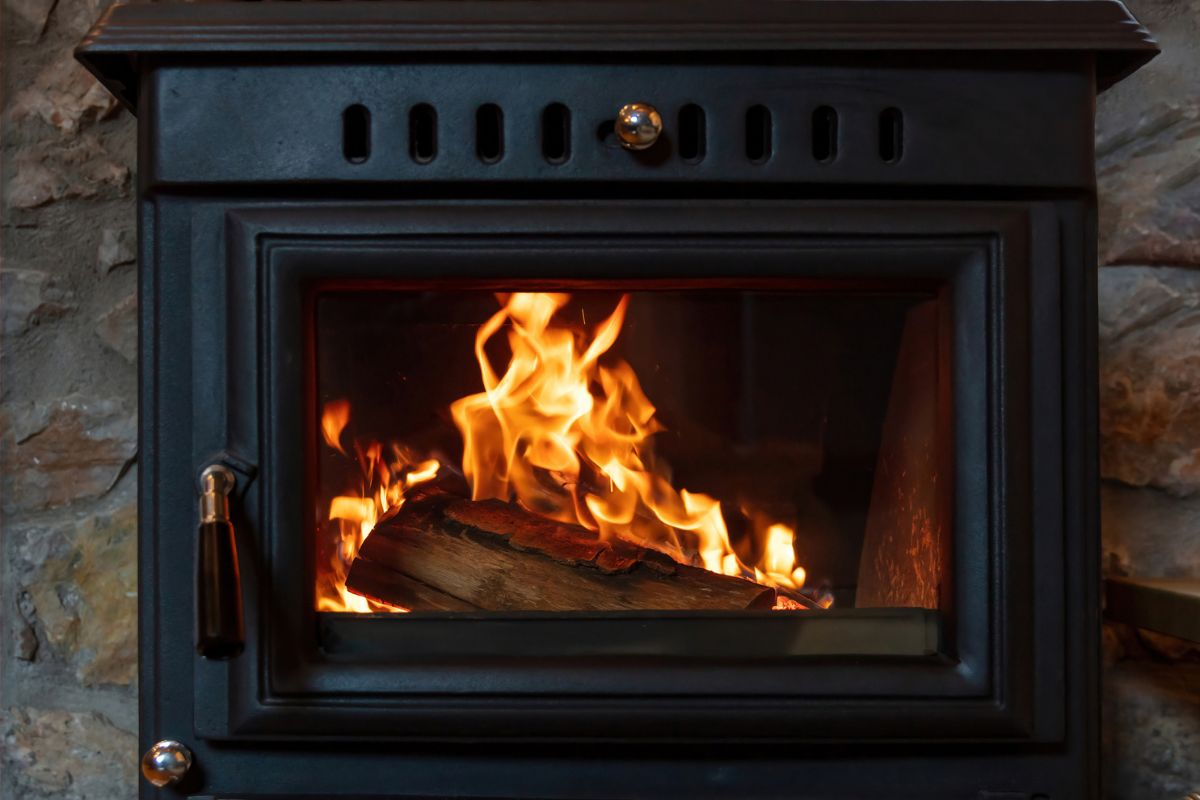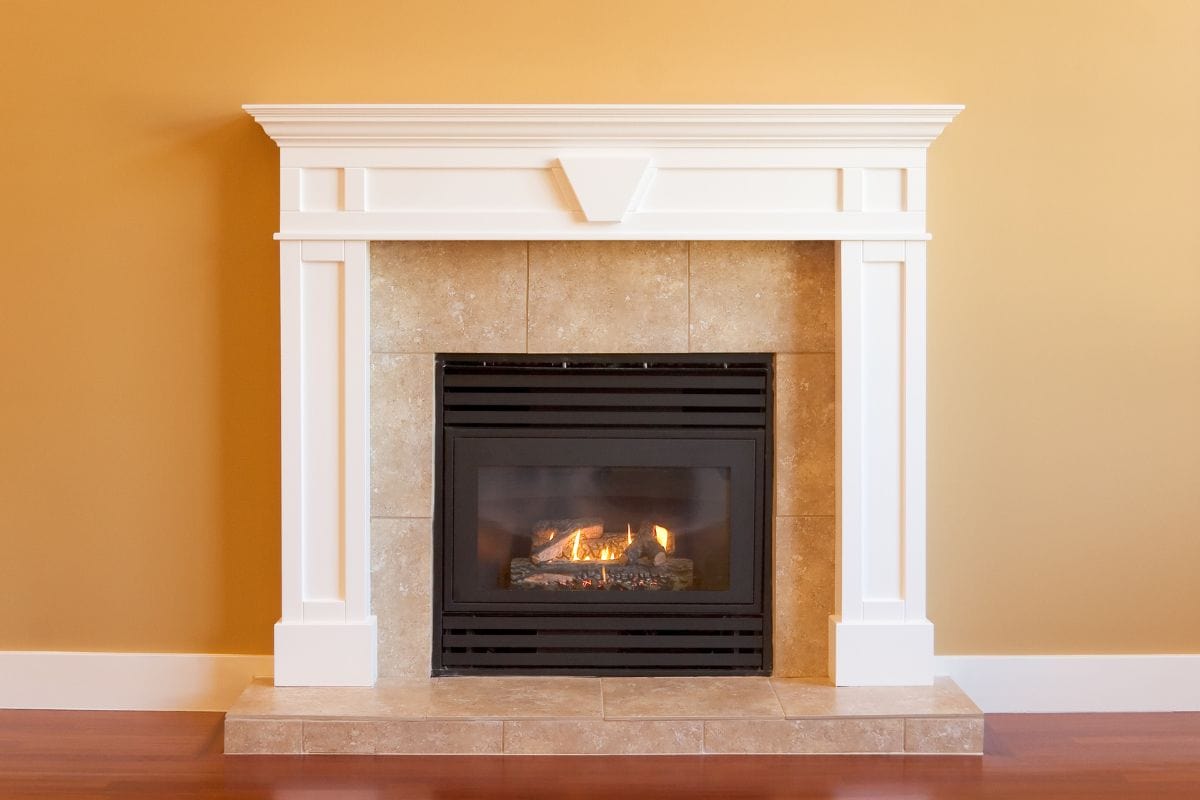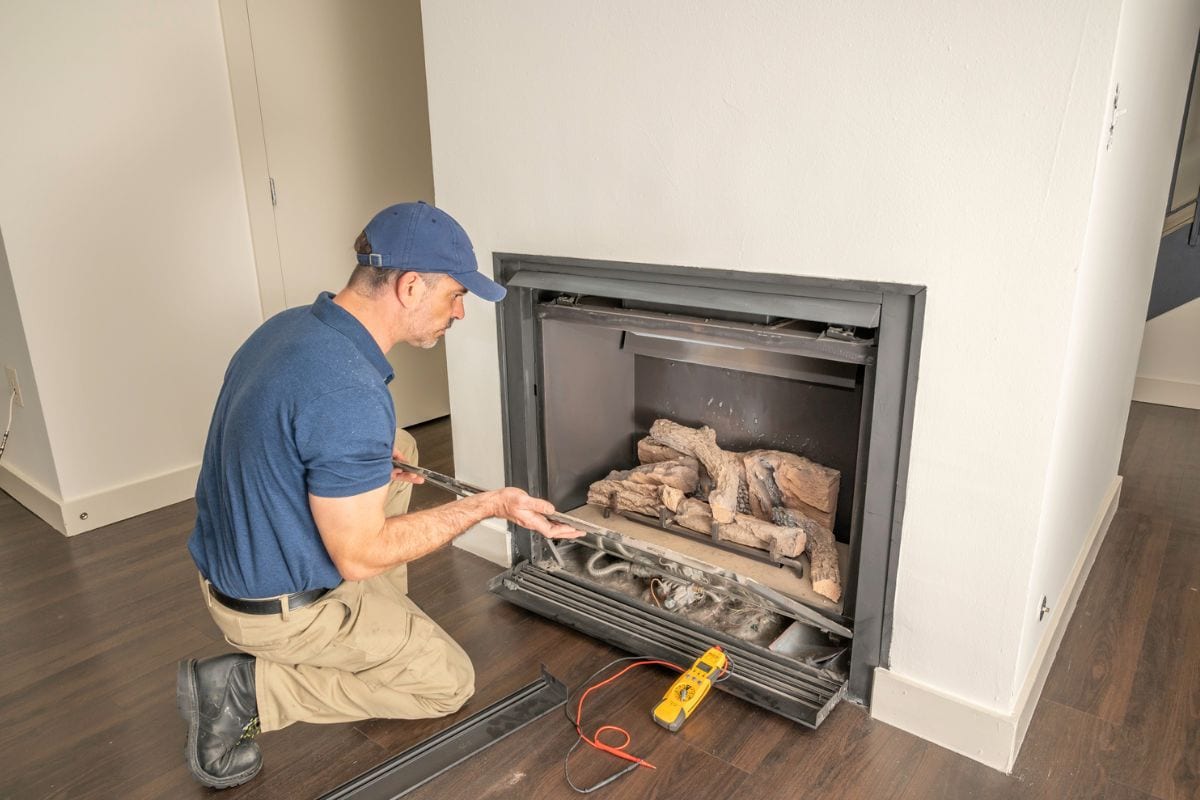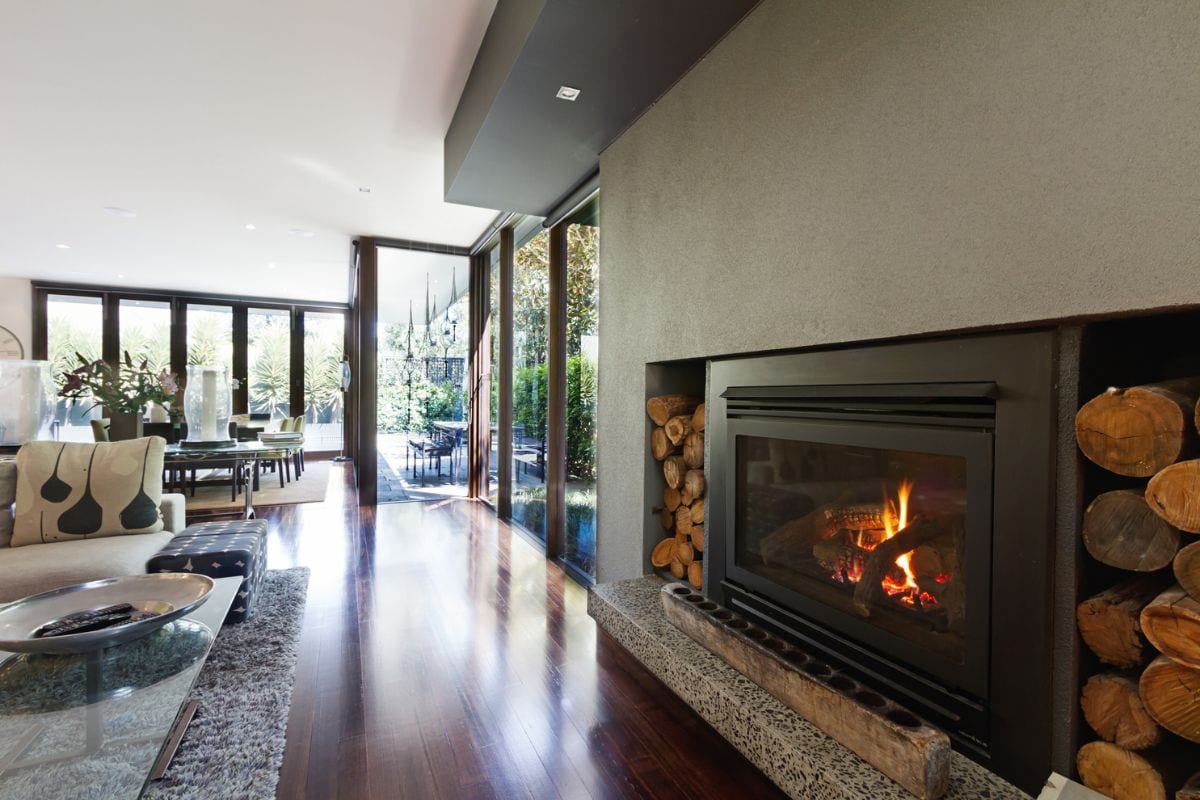Your gas fireplace is a beautiful addition to your home that can be a great source of warmth during the winter. But did you know that your gas fireplace can be hazardous? If your gas fireplace leaks, it can be a dangerous fire source. You may wonder how to tell if your gas fireplace is leaking. We did in-depth research to answer that question.
There are several indications you will notice if your gas fireplace is leaking:
- The foul smell of rotten egg or odorous gas.
- Whistling or hissing sound near the fireplace.
- Formation of air bubbles.
- Dead or withering plants.
- Symptoms of gas poisoning.
- High gas usage.
- Wear and tear of fireplace components.
- Gas leak detector sound.
- Yellow flames in gas burner instead of blue.
Keep reading as we thoroughly explain these indications, including the do's and don’ts when you are currently in this type of situation. We’ll also provide some tips to take note of if you have a gas fireplace at home to keep it safe and in good condition.
![A gas fireplace provides warmth during cold winter months in the northeast. - How To Tell If My Gas Fireplace Is Leaking [A Guide For Homeowners]](https://hvacseer.com/wp-content/uploads/2022/09/A-gas-fireplace-provides-warmth-during-cold-winter-months-in-the-northeast.-How-To-Tell-If-My-Gas-Fireplace-Is-Leaking-A-Guide-For-Homeowners.png)
Indicators Of A Leaking Gas Fireplace

A gas fireplace is a great fixture for your home, not just for its aesthetics, but also for its usefulness on cold winter nights. No matter how useful the fireplace is, you should properly care for and maintain it to ensure your safety.
A leaking gas fireplace is such a dangerous fire hazard, and here are some indicators of it:
Foul Smell Of Rotten Egg Or Odorous Gas
A notable property of natural gas is that it is odorless and colorless in its natural state. But gas companies add odorants such as mercaptan to natural gas to create an artificial odor, making gas leaks easier to detect by the smelling.
Mercaptan is a chemical that gives natural gas its rotten egg or hydrogen sulfide smell. A stronger smell indicates a higher possibility of a gas leak.
Whistling Or Hissing Sound Near The Fireplace
You should turn off all appliances or devices such as the washing machine or water heater that create sound. Silence any noise near the fireplace.
Listen carefully to determine if there is a whistling or hissing sound coming from your gas fireplace. Hearing a whistling or hissing sound strongly indicates the presence of a gas leak.
Formation Of Air Bubbles
Fill a spray bottle or any small container with water and add a few tablespoons of liquid dish soap. Stir the solution with a paintbrush to create a soapy mixture, then apply to all portions of the gas line. Turn on the gas and watch for the formation of air bubbles.
If air bubbles appear, your fireplace is leaking gas. Mini air bubbles like foam on the surface indicate a minor gas leak, whereas larger air bubbles indicate a major gas leak in your fireplace.
Dead Or Withering Plants
Take a walk around your fireplace location. Look for the gas lines there and check the grass or plants nearby. If the plants are dead or dying despite your taking proper care of them, it may be a clue that a gas leak is the culprit.
Your plants can wilt in the presence of a gas leak, since it blocks the roots from taking in oxygen. Gas leaks can also cause yellowish patches in the grass and leaves of trees.
Symptoms Of Gas Poisoning

Carbon monoxide is a colorless, odorless gas. Some people are unaware that they are already affected by gas poisoning until they feel ill.
Symptoms of low-level exposure to gas such as carbon monoxide include dizziness, headache, nausea, fatigue, irregular breathing, and chest pain.
Gas poisoning can even occur as a result of prolonged gas exposure, and symptoms include severe headaches, vomiting, memory problems, loss of muscle coordination, suffocation, loss of consciousness, and even death.
Contact a healthcare professional or go to the nearest healthcare center if you’re experiencing any of these symptoms for immediate medical attention.
High Gas Usage
A sudden spike in natural gas consumption indicates a possible gas leak.
A seasonal increase in the usage of natural gas can be expected when using other tools that use it.
But if an unexplained increase happens, especially when there are no additional hours in the usage of the gas fireplace and no new tool is added, then it might be because of a gas leak.
Wear And Tear Of Fireplace Components

A gas fireplace is a mechanical unit and needs regular maintenance. Components can eventually be damaged due to wear and tear.
This can happen especially when the fireplace's usage jumps from inactive to excessive in just a year. This wear and tear of fireplace components can cause gas leaks if not taken care of.
Gas Leak Detector Sound
There are several types of gas leak detectors, but all of them work the same way: they will detect the presence of gas and emit an alarm if there is a leak.
The detector will produce a sound and light if there is a leak. As soon as you hear this sound, get out of your house.
Yellow Flames In Gas Burner Instead Of Blue
If the fuel-to-air ratio is correct, the gas burner burns blue. A blue flame indicates that the gas appliance is fine and that the burner is releasing the proper amount of gas and oxygen.
However, a yellow burner flame implies that the burner is not getting enough air, leading to incomplete combustion.
The main factor affecting the flame color of a gas burner is the amount of carbon monoxide in the air. The presence of carbon monoxide is a clear indication of a gas leak.
Dos And Don’ts During A Gas Leak

Here are the things that you should and should not do in case a gas leak occurs in your household:
- Open the doors and windows to allow air to vent outdoors. Don’t keep them and other air exits closed to avoid hazardous gas concentration.
- Evacuate the premises as soon as you can. If you stay inside, you will be exposed to dangerous gas.
- Don’t use electronic devices such as cellphones or light switches inside to avoid sparks that can trigger combustion.
- Walk at least a 300 feet away from the area where there is a gas leak. Don’t start any vehicle near the exposed area.
- Don’t use a lighter, match, or any fire-related devices that can ignite an explosion.
- Call the appropriate authorities whenever there is a gas leak and report the situation.
- Leave the leak detection to personnel with expertise. Don’t find the source of the leak yourself.
- Contact a professional to repair the leak. Don’t attempt to fix anything on your own since it will only place your safety at risk, especially if you don’t have the appropriate tools or know the proper procedure for repair.
- Seek medical attention immediately if you’re feeling ill and showing signs of gas poisoning.
- Stay calm and don’t panic. Panicking cannot help you solve the issue and won’t do any good.
Tips For Gas Fireplace Owners
Having a gas fireplace is both a luxury and a responsibility. Take note of the following if you have a gas fireplace:
- Know the indications of a gas leak.
- Conduct a gas fireplace safety check.
- Inspect appliances and other tools that use natural gas.
- Get an annual fireplace inspection.
- Keep children away from the fireplace.
- Invest in an efficient gas leak detector.
- Practice turning off your natural gas source when not in use.
Maintain Your Gas Fireplace Safely

One of the best ways to keep your gas fireplace safe is to take care of it. You should regularly clean your gas fireplace and check for signs of wear and tear. You should also clear the ashes away from the fireplace at least once a month.
Regularly clean your fireplace by unplugging it and using a fireplace cleaner approved for gas appliances. Make sure to clean all the parts of your fireplace, including the fireplace screen and mantel to keep them in good condition.
You can also make your fireplace safer by installing a door for it. A fireplace door will keep the ashes and other debris away from the fireplace.
Final Thoughts
To know if your gas fireplace is leaking, check if you smell something like rotten eggs. Listen for a hiss from your fireplace or if the gas leak detector makes a sound.
You can also look for air bubbles, withering plants, wear-and-tear, or a yellow flame from the burner. Take note if you're having symptoms of gas poisoning or if gas usage is higher.
If you found this helpful, do check out our other related articles:
